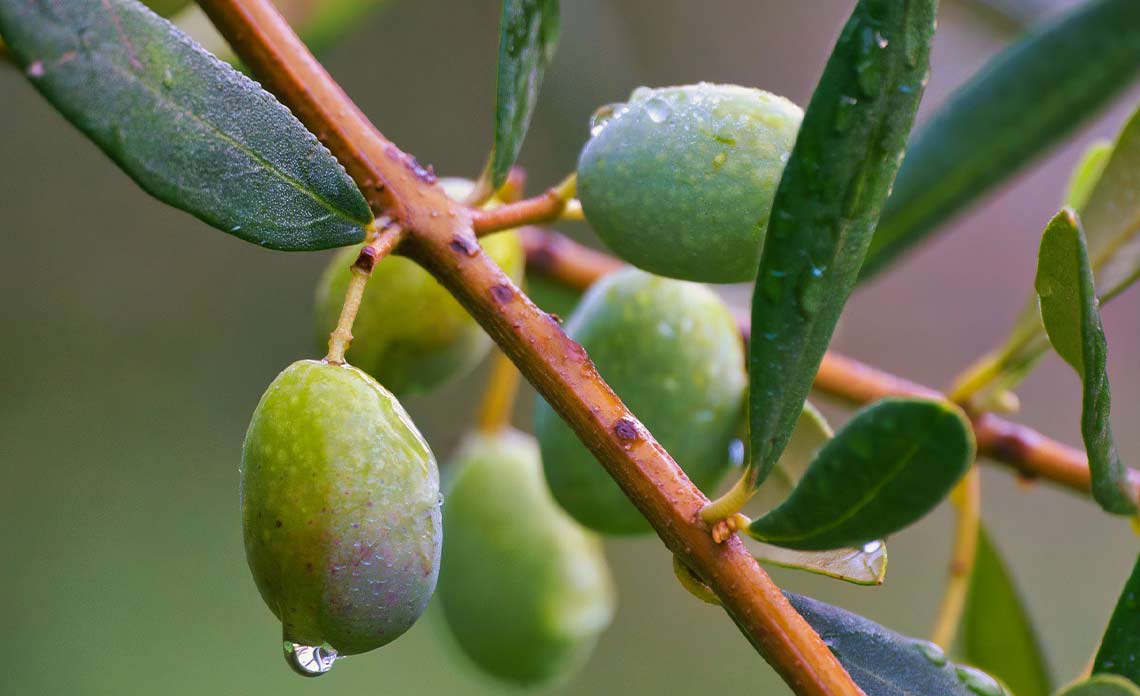What does the taste of an olive oil depend on?
Taste is characterized by a mixture of flavors felt by the tongue and smells felt by the nose. Our sense of taste is connected not only to our receptors, but also to the memories we have created by tasting and smelling foods throughout our lives. However, taste is not just a matter of science. Whether it is wine, beer or olive oil, producers use their know-how to develop flavors with ever more innovative taste qualities. The taste of an olive oil is the result of many years of work and perseverance and depends on the soil, the varieties used, the extraction method and the maturity of the fruit. La Compagnie de l’Huile d’Olive teaches you more about the elements that have an impact on the taste of olive oil!
Olives: a multitude of varieties
About 2,000 species of olive trees are listed in the world, but about thirty species account for 90% of world consumption. The fruit of each variety is unique, different in shape, stone, pulp, color and therefore taste. Since olive oil is a fruit juice, the olive variety chosen affects the taste of the oil extracted from it.
In France, there are more than a hundred varieties of olive trees that are typical and linked to a more or less extensive territory (from a few municipalities to 2 or 3 departments). In total, there are about 15 different climatic and geological regions in France, with nearly 300 private or cooperative mills. This wealth of varieties allows French olive growers to offer olive oils with unique aromatic notes!
Among the olive varieties most used for the production of olive oil in France, you can find the Aglandau, the Bouteillan, the Grossane, the Lucques, the Picholine, etc. Some varieties of olives will be used only for the production of olive oil, while others are intended to be consumed as “table olives”.
Olive oil, a taste influenced by its terroir
The taste of olive oil depends on its terroir, the place where the olives were grown. Each variety is cultivated on a more or less extensive territory with its own characteristics. Indeed, the nature of the land (limestone, pebbles, rocks and stones, etc.), the exposure of the orchard/tree, the weather and the microclimate influence the taste of the olive oil. Similar olive varieties grown on two different soils will not taste the same.
Furthermore, it is important to know that some olive varieties are widespread throughout the world (Arbequine, Picual, Koroneiki, etc.), while others are very localized (Tanche, Salonenque, Verdale des Bouches du Rhône, etc.).
French olive oil: unbeatable taste quality linked to the know-how of French olive growers
The terroir and the variety of olives used are not the only factors influencing the taste of olive oil. Indeed, the know-how of the producer plays a very important role and has a huge impact on the quality and taste of the olive oil. Indeed, it is the olive grower who chooses the variety to be cultivated, the soil, the time of harvest, the equipment but also the method of extraction of the oil.
With passion and a unique know-how, the olive tree is cultivated in France in the respect of a tradition which goes back to the antiquity. Most of the French olive oil productions are respectful of the environment and the health of the consumer. The methods used by French olive growers allow them to offer French olive oils with an unbeatable taste quality!
La Compagnie de l’Huile d’Olive: quality French olives, tapenades, honeys and olive oils
La Compagnie de l’Huile d’Olive is committed to selecting only organic and French producers who have opted for a superior quality olive oil production, far away from the logic of mass production of low quality.
Discover our olive oils by clicking here !


